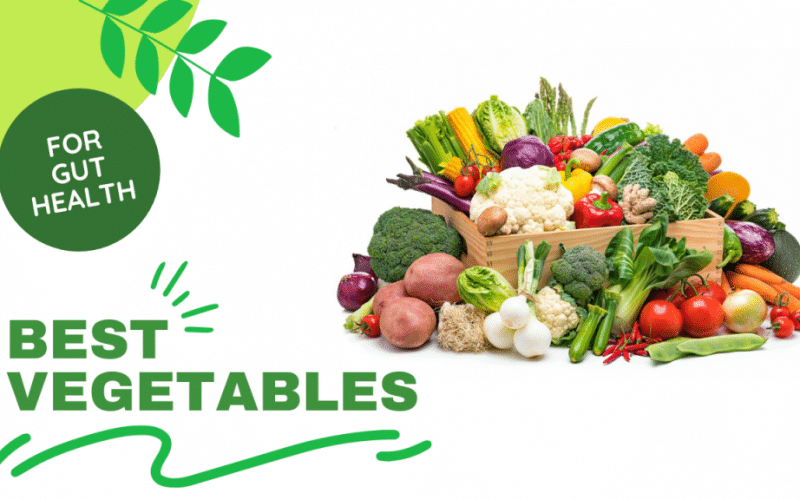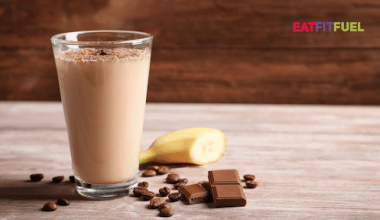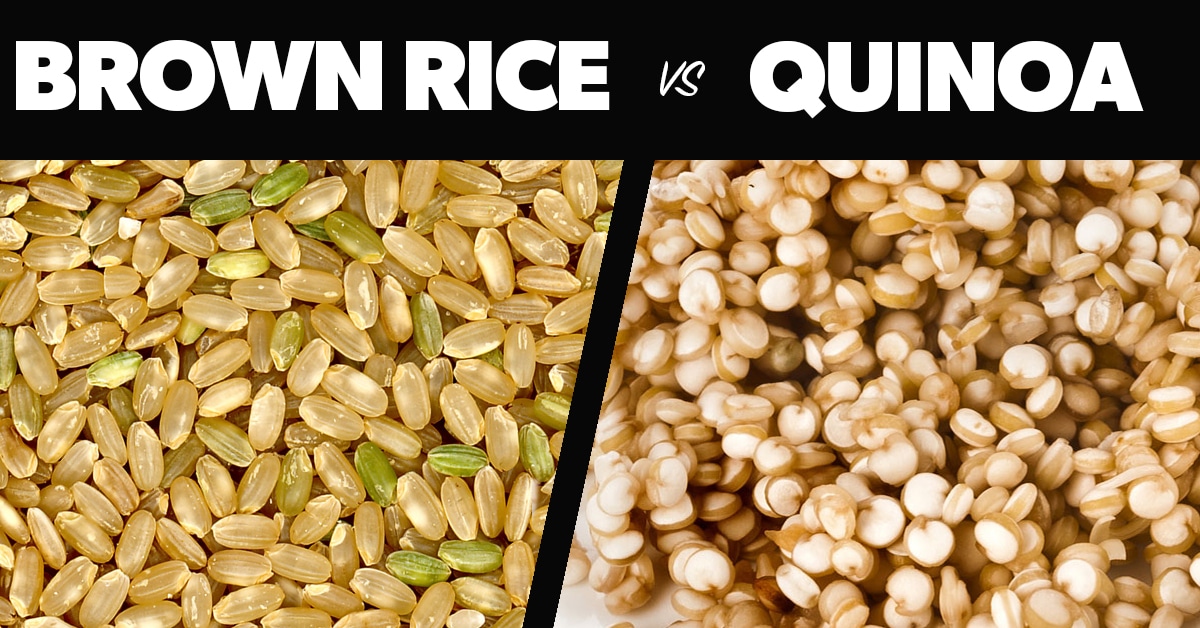If you’ve been feeling less-than-top-form lately, we’re pretty sure your gut can relate. From occasional bloating to more chronic issues like irritable bowel syndrome and chronic constipation, an unhealthy gut is definitely no fun – not just physically but even mentally.
Fortunately, there are certain foods that could make all the difference in restoring balance in our guts. With the right veggies, obtaining optimal digestive health has never been easier!
So if you’re considering adding some extra greens to your plate (which you should be!), read on to find out the best vegetables to kickstart your gut health journey.
What Makes Vegetables So Incredible For Gut Health?
For starters, vegetables are packed with fiber – both soluble and insoluble.
Soluble fiber binds with water to form a gel-like substance during digestion, which helps slow down the digestive process and allow for better nutrient absorption. It also helps in the development of healthy gut bacteria.
Insoluble fiber, on the other hand, remains largely unchanged throughout the entire digestion process. This type of fiber helps add bulk to stool and promote regularity, thus aiding in relieving constipation and other bowel issues.
Apart from that, vegetables are also rich in vitamins, minerals, and polyphenols – all of which can help nourish the gut microbiome. This is important because a healthy gut microbiome is essential for improved digestion, boosted immunity, and better overall health.
The Best Vegetables For Gut Health
Now that you know why these green powerhouses are so amazing for our guts, let’s move on to the good stuff – here are some of the best vegetables you should add to your diet for gut health.
Broccoli
Broccoli is one of the best vegetables you can eat for optimal gut health. It’s loaded with healthy compounds like fiber, vitamins, minerals, and antioxidants that work together to help nourish your gut microbiome.
The fiber contained in broccoli helps slow down digestion and absorb nutrients more efficiently, while its antioxidants protect the lining of your digestive tract from inflammation. Additionally, broccoli contains high amounts of vitamin C and E as well as folate – all of which are important for keeping your gut healthy.

Apart from being great for digestion, broccoli also helps improve overall health. This cruciferous vegetable is an excellent source of plant-based protein, calcium, magnesium, and potassium – all of which play a role in maintaining energy levels and building strong bones.
To get the most out of this amazing vegetable, it’s best to include it raw or lightly cooked in salads or smoothies. Alternatively, steaming broccoli makes the nutrients more available for better absorption by our bodies!
Spinach
The leafy green vegetable we’ve all come to love – spinach is another amazing food for gut health. Like broccoli, it contains plenty of fiber and vitamins, which help nourish the gut microbiome and keep our digestive system running smoothly.
Spinach is also rich in lutein, beta-carotene, and antioxidants, which can help protect against inflammation and reduce oxidative stress in the body. Additionally, its high folate levels make it a great food for pregnant women as it helps support healthy fetal development.
For optimal digestion, try adding spinach to your salads or smoothies! Alternatively, you could also sauté it with some garlic and olive oil for a simple side dish.
Brussels Sprouts
Another gut-friendly cruciferous vegetable to add to your repertoire are Brussels sprouts. Just a single cup of these mini cabbages contains plenty of fiber, vitamins, and minerals, which can help promote digestive health.
Research has also shown that Brussels sprouts have anti-inflammatory properties, which could help protect the lining of our intestines from damage. Additionally, they contain high amounts of vitamin C and K as well as folate – all essential for optimal digestion.
The best way to consume Brussels sprouts is by roasting or steaming them with some garlic and olive oil for a delicious side dish! If you’re not a fan of their flavor on its own, try tossing it in salads or sautéing it with some onions and peppers.
Artichoke
Artichokes are another great vegetable to incorporate into your diet if you’re looking to improve gut health. This unique veggie is rich in dietary fiber and prebiotic compounds, which help promote the growth of beneficial bacteria in the gut.
Plus, artichokes contain a powerful antioxidant known as cynarine that may help reduce inflammation and protect the lining of your digestive tract from damage.
Eating artichoke regularly can also prevent constipation, decrease bloating and help regulate bowel movements – all of which are essential for maintaining optimal gut health.
When it comes to feeding your family artichoke, there are plenty of ways to do so! Artichoke hearts can be served raw or cooked in salads and sandwiches. You can even use the whole vegetable in soups, stews, and other dishes!
Kale
Kale is another powerhouse vegetable that should be included in any gut-friendly diet. Just like broccoli, this leafy green also contains lots of fiber and antioxidants, as well as high amounts of vitamins A, C, and K.
The fiber found in kale can help reduce bloating and improve digestion by adding bulk to stool. At the same time, its antioxidant content helps protect the gastrointestinal tract from oxidative damage caused by free radicals.
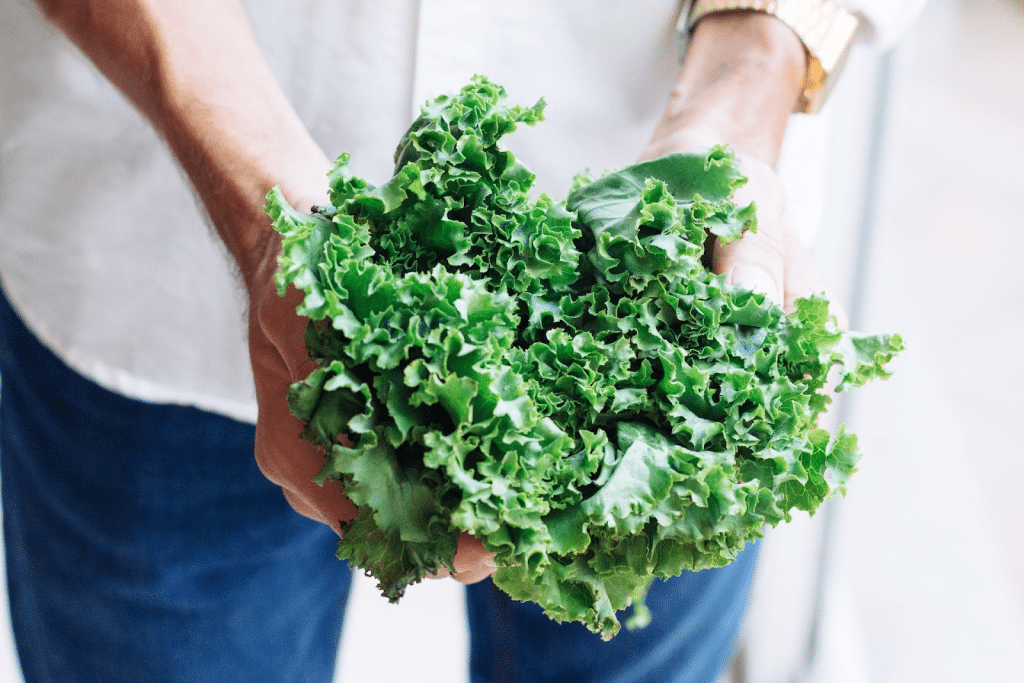
In addition to that, kale has anti-inflammatory properties due to its carotenoid content, which can help fight inflammation in our guts. Plus, it’s a great source of calcium for healthy bones – something that everyone should pay attention to!
You can easily incorporate kale into your diet by adding it to salads, soups, or smoothies. And if you’re not a fan of the taste, try lightly sautéing it before eating.
Beetroot
Beetroot is another superfood that’s great for gut health. Not only are they packed with fiber, vitamins, and minerals, but they also contain betalains – a type of antioxidant that helps reduce inflammation in the digestive tract.
Apart from providing anti-inflammatory benefits, beetroots are also rich in nitrates which help increase blood flow to the stomach and aid digestion. In addition, beetroots contain polyphenols which can help protect your gut microbiome from damage caused by free radicals.
To reap the most nutrition out of this veggie, it’s best to eat them raw or lightly cooked – like steaming and roasting. You can even add some beets to your smoothies for an extra boost of flavor and nutrition.
Carrots
Carrots are another great vegetable to add to your gut health diet. They contain a lot of dietary fiber, vitamins, and minerals that have several beneficial effects on our digestive system.
This root vegetable is especially rich in vitamin A, which helps promote optimal digestion as well as maintain healthy skin and eyesight. Additionally, it contains compounds like beta-carotene and lutein that protect the lining of our gut from inflammation and oxidative damage.
Moreover, carrots are also packed with soluble fiber – the type that binds with water during digestion and creates a gel-like substance to help slow down the digestive process for better nutrient absorption. In addition, its insoluble fiber helps keep things moving along smoothly by adding bulk to our stools.
For best results, try to include raw or lightly cooked carrots in your daily meals. You can easily add them to salads and smoothies, or steam them for a nutritious side dish.
Incorporating Vegetables Into Your Diet — How to Make It Easier?
Eating more vegetables is a simple and effective way to promote good gut health. But for some people, it can be difficult to think of ways to include them in their daily meals.
If that’s the case for you, here are a few tips that can help make it easier:
Get Creative With Recipes
Creating new and interesting recipes with vegetables is a great way to incorporate them into your diet. You don’t have to stick to the same old salads, soups, and sides. Instead, you can get creative and find different ways to highlight the flavor, texture, and nutrition of the veggies you’re using.
For example, you can make a veggie-packed stir fry with brown rice or whip up a vegetable frittata for breakfast. Or, if you’re looking for something sweet, try making zucchini bread or carrot cake.
Have Veggies On Hand
To make sure you always have vegetables available when meal prepping or cooking, stock up on pre-cut vegetables like carrots and bell peppers. That way, you can easily throw them into your stir-fries or omelets without having to spend time preparing them.
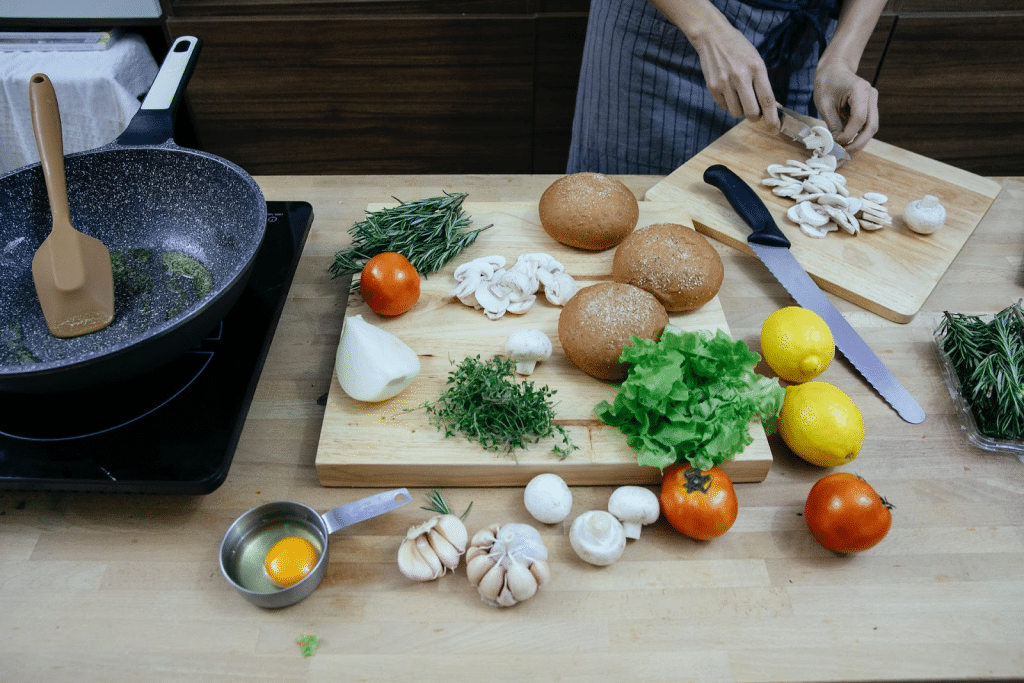
You can also freeze certain veggies that don’t spoil quickly, such as spinach, kale, broccoli, and cauliflower. That way, you can easily add them to your meals without having to worry about spoiling them.
Take It Slow
If you’re not used to eating lots of vegetables, then it’s best to start off slow and gradually increase your intake over time.
You don’t have to completely overhaul your diet all at once — small steps can still make a difference. Just adding one more serving of vegetables to your meals each day is already an accomplishment.
Conclusion
Gut health is essential for our overall well-being, so it’s important to make sure that we’re eating the right foods. Incorporating vegetables like artichokes, kale, beetroot, and carrots into your diet can help promote beneficial bacteria growth in your gut while also providing essential vitamins and minerals.
Make sure to follow the tips above to make it easier to add more veggies to your daily meals. This way, you can enjoy the delicious and nutritious benefits that these vegetables provide!
